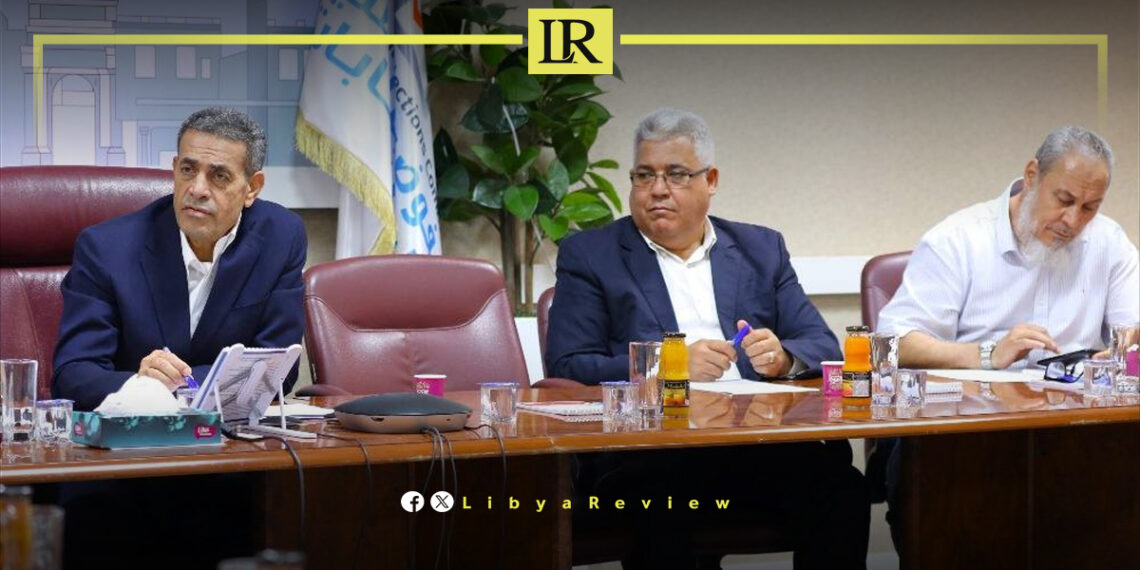On Tuesday, Libya’s High National Election Commission (HNEC) held a broad security and community meeting to finalize preparations for the municipal elections scheduled on August 23 in Al-Zawiya Central, Al-Zawiya Mid, Al-Zawiya West, Al-Zawiya North, Sabratha, Surman, and Bir Al-Ghanem.
The meeting was attended by senior officials, tribal leaders, and security institutions in an effort to guarantee that the upcoming vote proceeds in a safe and transparent environment.
The session was chaired by HNEC President Imad Al-Sayah alongside Major General Ali Al-Nwaisri, Director of Security Operations at the Ministry of Interior, and was attended by representatives from electoral offices, technical teams, and security coordinators. Participants underscored the need for strong coordination to ensure voter confidence and to shield the process from disruptions.
Community elders and tribal leaders from Al-Zawiya took part in the discussions, highlighting their responsibility in preserving stability, encouraging citizens to cast their ballots, and fostering trust in the electoral process. Their involvement was seen as a vital component for reducing tensions and supporting turnout.
The meeting also detailed the comprehensive security plan developed to protect polling centers. Security directorates from Al-Zawiya, Surman, and Sabratha joined with the Ministry of Interior’s Central Election Security Room, the 52nd Infantry Brigade, the Counter-Security Threats Agency, and the Internal Security Apparatus to map out logistics, rapid-response protocols, and measures for safeguarding voters, election staff, and sensitive materials.
The HNEC emphasized that safe and transparent elections require the collective effort of security institutions, local leaders, and state authorities. Officials framed the upcoming polls as not only a democratic exercise but also a test of Libya’s ability to restore stability and reinforce local governance.
The preparations follow recent arson attacks on HNEC offices in Al-Zawiya and the Western Coast, which led to the destruction of election materials and the postponement of polls in those municipalities. Despite these setbacks, the commission reaffirmed its determination to proceed with the elections as planned in other areas, describing them as a cornerstone of rebuilding confidence in institutions and empowering citizens through local representation.


